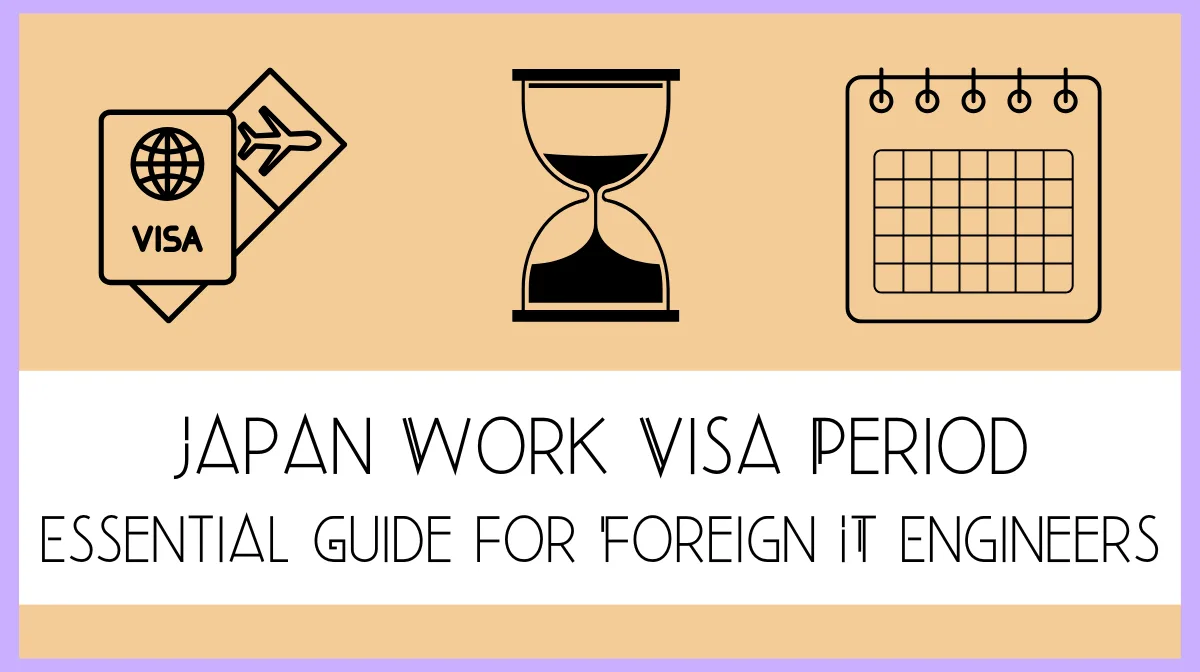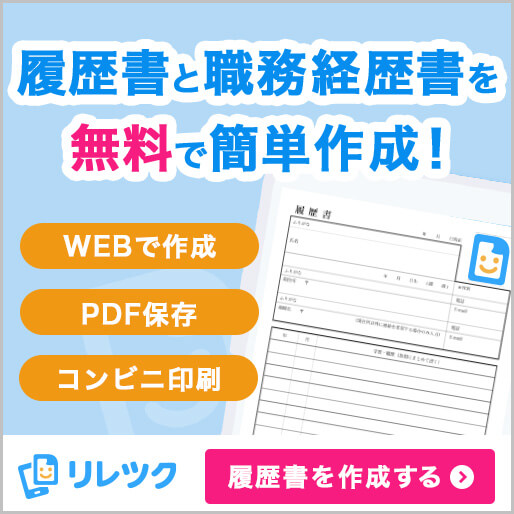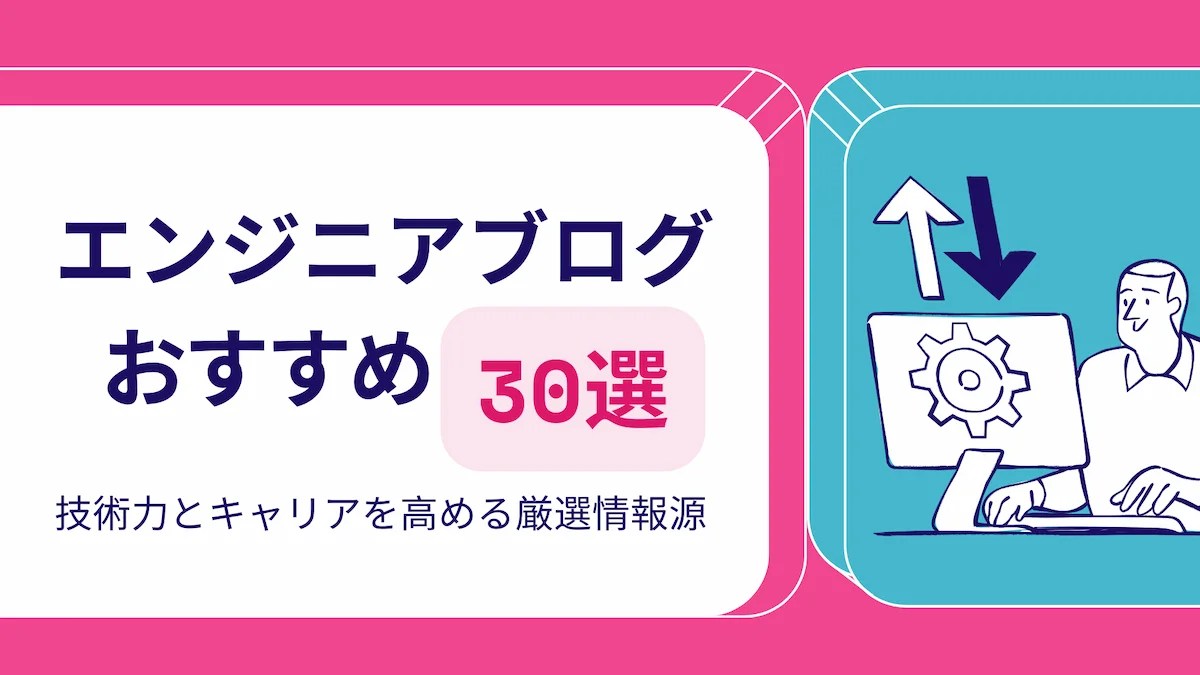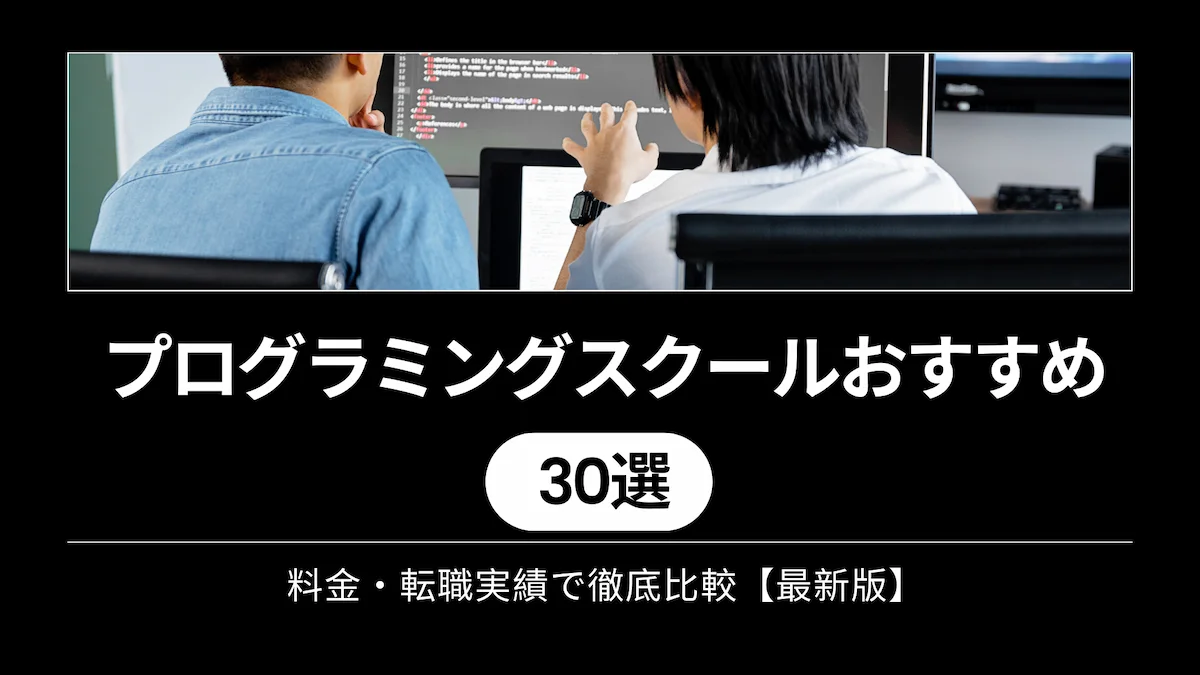For foreign IT engineers working in Japan, the duration of work visas is a crucial element that forms the foundation of stable employment.
Particularly for the “Engineer/Specialist in Humanities/International Services” residence status, a wide range of periods from as short as 3 months to as long as 5 years is set, and there are various requirements for obtaining and renewing this status.
This article explains practical information from the system of residence periods to application procedures, and key points for achieving long-term residence.
- Work visa duration factors for IT engineers in Japan.
- Application and renewal timelines.
- Tips for securing longer residence periods.
1. Basic Knowledge of Work Visas and Overview of Duration Periods

Work visas are essential residence permits for foreigners to legally work in Japan.
Japan’s work visa system is complex and diverse, but this article will explain important points regarding periods and renewals, particularly for residence statuses relevant to IT engineers.
The duration period varies depending on the type of residence status, ranging from as short as 3 months to as long as 5 years. Additionally, the possibility of renewal and restrictions on the number of renewals differ according to the type of residence status.
Reference: Ministry of Foreign Affairs: Long-term Stay and Work Visas
Main Types of Work Visas Related to IT Engineers
The most representative work visa obtained by IT engineers is the “Engineer/Specialist in Humanities/International Services” visa. This residence status can be obtained by those who have received education in IT-related fields at universities or technical colleges.
Other options such as the Highly Skilled Professional visa or Specified Skilled Worker visa may be alternatives depending on the situation, but most IT engineers work under the Engineer/Specialist in Humanities/International Services residence status.
Reference: Immigration Services Agency: Engineer/Specialist in Humanities/International Services
Basic Determination Method and Characteristics of Residence Periods
The duration of residence is determined at the discretion of the Minister of Justice.
Points considered in the determination (evaluated comprehensively)
- Applicant’s educational background and work history
- Size and track record of the employing company
- Intended job duties
- Salary level, etc.
Especially for first-time applications, the residence period is determined after carefully evaluating the above elements. If the applicant’s conditions are favorable, there is a higher possibility of being granted a longer residence period.
Maximum Duration and Number of Possible Renewals
In the case of Engineer/Specialist in Humanities/International Services, the maximum residence period is set at 5 years. There is no limit on the number of renewals, so continuous renewal is possible as long as requirements are met.
However, in some cases such as the Specified Skilled Worker (i) residence status, there may be limits on the total possible duration of stay.
During renewal, activity performance during the previous residence period and tax payment status are also important factors for consideration. If these elements are favorable, there is a higher possibility of being granted a longer residence period for the next renewal.
2. Duration of Engineer Visa Status in Japan

Engineer/Specialist in Humanities/International Services is the most common work visa for IT engineers. The duration setting for this residence status has a certain range, and an appropriate period is determined based on the applicant’s situation and conditions.
It is important to understand the mechanism of period determination at each stage, from initial application to renewal.
The Meaning of Maximum 5 Years and Minimum 3 Months Duration Settings
Regarding the various residence periods for Engineer/Specialist in Humanities/International Services
- 5-year period
Applied as the maximum period when there is sufficient track record and reliability - 3-year period
Treated as the standard general period, in many cases this period is set - 1-year period
Set when verification of track record is necessary - 3-month period
Applied for trial periods or when there are special circumstances
Such flexible period settings enable appropriate residence management according to individual situations.
Typical Duration Obtained for Initial Applications
For initial applications, a 1-year residence period is typically granted. This is to verify the applicant’s track record, confirm employment stability, and check adaptation to work and life in Japan.
However, in cases of employment at large companies or when particularly high expertise is recognized, a 3-year residence period may be granted even for initial applications. During assessment, the applicant’s background, job duties, and employment conditions are comprehensively evaluated.
Key Points for Duration Determination During Renewals
Elements judged during renewal applications (comprehensively determined)
- Work performance during the previous residence period
- Fulfillment status of legal obligations such as tax payment
- Continuity of employment contract
- Appropriateness of salary level
Particularly important point: Whether the applicant has worked without issues and properly fulfilled all obligations during the previous residence period
If the above conditions are met, there is a higher possibility of being granted a longer residence period. Continuous work performance and compliance with laws are key to obtaining a long-term residence period.
■日本でエンジニアとしてキャリアアップしたい方へ
海外エンジニア転職支援サービス『 Bloomtech Career 』にご相談ください。「英語OK」「ビザサポートあり」「高年収企業」など、外国人エンジニア向けの求人を多数掲載。専任のキャリアアドバイザーが、あなたのスキル・希望に合った最適な日本企業をご紹介します。
▼簡単・無料!30秒で登録完了!まずはお気軽にご連絡ください!
Bloomtech Careerに無料相談してみる
3. Time Required from Work Visa Application to Acquisition

The process from work visa application to acquisition requires going through multiple stages, and each stage takes a certain amount of time.
For smooth application, proper time management including necessary preparation periods is important.
Especially for initial applications, sufficient time should be allowed for preparation, from obtaining the Certificate of Eligibility to the issuance of a visa.
Time Required to Obtain a Certificate of Eligibility
The standard examination period for obtaining a Certificate of Eligibility is approximately 30-90 days. Particularly for Engineer/Specialist in Humanities/International Services, the examination is generally completed in about 30-40 days.
However, as this is the overall process after document submission up to the basic determination of the residence period and its characteristics, at least 2-3 months should be anticipated.
Reference: Ministry of Justice: Residence Status Examination Period
Time Required for Residence Period Extension Applications
The standard processing time for extension applications is published as approximately 14 days, but in practice, processing typically takes about 30 days. Additionally, preparation of necessary documents requires about 2 weeks to 1 month.
Since extension applications can be made from 3 months before the expiration of the residence period, it is recommended to proceed with application procedures well in advance, considering these timeframes.
Key Points to Minimize Application Time
To minimize application time, it is important to thoroughly confirm and prepare necessary documents in advance. Also, carefully check for any omissions or deficiencies in the content of submission documents, and properly prepare originals and copies.
Particularly for documents that take time to issue, such as salary certificates, it is advisable to prepare them early. For first-time applications, consulting with an experienced administrative scrivener (gyoseishoshi lawyer) can enable smoother application procedures.
Reference: Tokyo Administrative Scriveners Association: Residence Status
4. Key Points for Securing Maximum Residence Period

To obtain a longer residence period, both preparation at the time of application and daily responses are important.
It is necessary to understand that factors such as company size, salary conditions, and past residence history are comprehensively evaluated, and to respond appropriately to each element.
Securing a long-term residence period leads to a stable work environment.
Impact of Company Size on Assessment
Company size is an important factor in the assessment.
Specific evaluation points (comprehensively evaluated):
- Company’s capital size
- Number of employees
- Business performance
- Experience in employing foreigners, etc.
Especially when employed by large companies or companies with extensive experience in employing foreigners, there is a tendency for longer residence periods to be granted. It is important to understand that a company’s stability and reliability directly affect the length of the residence period.
Relationship Between Salary Conditions and Residence Period
Salary level is an important indicator in determining the residence period.
Evaluation points
- Whether the salary level is equal to or higher than that of Japanese nationals
- Whether there is an appropriate salary setting commensurate with job duties
- Whether it sufficiently exceeds the regional minimum wage
Particularly for evaluation as a highly skilled professional, salary level is an important judgment criterion. Maintaining an appropriate salary level is an important factor for obtaining a longer residence period.
Impact of Past Residence History
Past residence history has a significant impact on future residence periods. Important evaluation items include compliance with laws, fulfillment of tax obligations, enrollment in social insurance, and absence of criminal records.
If you maintain a good record in these elements, it becomes easier to be granted a longer residence period.
Additionally, continuous work performance and social contribution are also considered as factors that positively influence the extension of the residence period.
Reference: Ministry of Justice: Immigration Status
■日本でエンジニアとしてキャリアアップしたい方へ
海外エンジニア転職支援サービス『 Bloomtech Career 』にご相談ください。「英語OK」「ビザサポートあり」「高年収企業」など、外国人エンジニア向けの求人を多数掲載。専任のキャリアアドバイザーが、あなたのスキル・希望に合った最適な日本企業をご紹介します。
▼簡単・無料!30秒で登録完了!まずはお気軽にご連絡ください!
Bloomtech Careerに無料相談してみる
5. Countermeasures and Precautions for Work Visa Expiration

The expiration of a work visa can cause serious problems.
By conducting appropriate deadline management and renewal procedures, a stable work environment can be maintained. It is important for both companies and foreign workers to take responsibility for deadline management.
Regular confirmation and early response are key to preventing problems.
Appropriate Timing for Renewal Applications
Renewal applications can be made from 3 months before the expiration date. However, in practice, it is recommended to apply by 2 months before to allow sufficient time. Also, it is desirable to secure about a month for preparing necessary documents.
Especially when the renewal period coincides with a company’s busy season, earlier preparation becomes more important. Planned renewal procedures enable smooth extension of the residence period.
Risks and Countermeasures for Residence Period Expiration
Expiration involves the risk of illegal stay, and companies may also be subject to penalties. Once expired, there may also be restrictions on re-entry.
To avoid these risks, it is essential to thoroughly manage deadlines and ensure renewal procedures are properly conducted. It is important for both companies and employees to be aware of deadlines and proceed with renewal procedures at the appropriate time.
Reference: Immigration Services Agency: Self-Reporting
How to Handle Problems and Consultation Services
If problems occur, it is recommended to first consult with an Immigration Services Bureau. Also, consultation with an administrative scrivener is effective when professional advice is needed.
Close coordination with the company’s human resources department is also important; many problems can be prevented by appropriate consultation and response at an early stage. Especially if there are any unclear points, it is wise to consult with experts as early as possible.
Reference: Immigration Services Agency: Consultation Services
6. Understanding Work Visa Duration Periods and Preparation to Thrive in Japan
The duration of work visas is an important element directly linked to the career plans of foreign IT engineers.
Particularly with the Engineer/Specialist in Humanities/International Services residence status, it is possible to obtain a maximum residence period of 5 years with proper preparation and procedures.
A stable work environment can be maintained by both companies and foreign employees properly managing deadlines and proceeding with renewal procedures in a planned manner.
If you have any questions, we recommend consulting with experts early on.



















